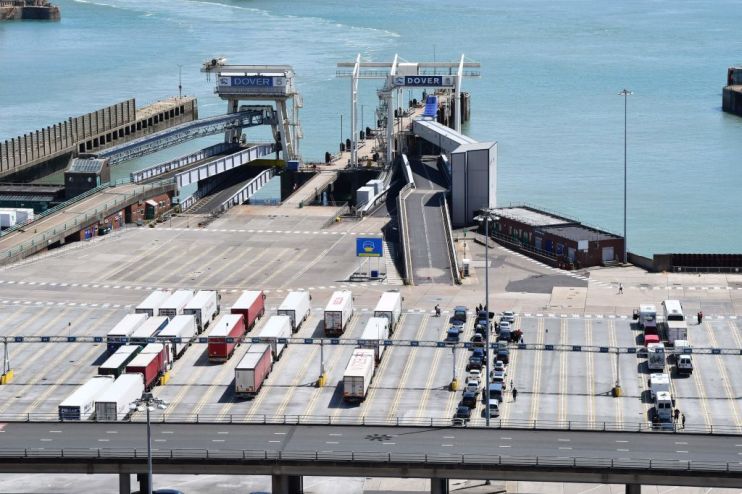UK unveils new three-stage post-Brexit border plan

The UK’s post-Brexit border regime will come into place over three stages next year, with most businesses able to delay filling out any customs declaration forms until July.
The border regime will be fully operation in July, with no customs checks at the border until this point, as the government plans to build 10 to 12 inspection sites.
The changes will come into place as the UK leaves the EU customs union and single market on 31 December, regardless of whether Britain strikes a trade deal with Brussels.
Cabinet Office officials estimate that British businesses will now need to fill in 400m import and export declarations next year due to the necessary changes.
Cabinet Office minister Michael Gove unveiled the plan today in the House of Commons together along with a £90m advertising blitz to get businesses and tourists ready for the end of the Brexit transition period on 31 December.
Gove said businesses that trade with the EU would now need a EU EORI number and commodity code; need to know customs value of goods; and need to “consider whether they are able to use available simplification like deferring customs declarations”.
He added that details of the Northern Ireland border plan would be revealed later this month.
The new border plan, which is only applicable for Great Britain, is spaced out over three stages, which come into place in January, April and July respectively.
From 1 January, businesses importing “standard goods” – these range from things such as clothing to electronics – will need to fill out custom declarations and pay any necessary tariffs.
Traders have six months to fill out customs declarations and tariffs can be deferred until this time.
However, those importing controlled or excised goods – like alcohol and tobacco – will need to submit customs declarations and pay tariffs immediately.
For this first stage any in-person checks on live animal and plant imports will be made at the shipment’s final destination.
Export declarations and UK exit Safety and Security declarations will be required for all goods.
From April, all importers of products of animal origin – such as meat, milk, honey and eggs – will need to fill out health documentation prior to a shipment arrives.
In-person checks will still take place at the point of destination.
From July, businesses will have to fill out entire customs declarations at “the point of importation” and pay relevant tariffs immediately.
Sanitary and phytosanitary checks on animal products will happen at border control posts in Great Britain.
“[The plan] will benefit importers and exporters and provide information to hauliers, shippers, freight companies and our customs intermediaries,” Gove said.
The government is planning to build 10-12 inspection sites, which will be able to check goods such as animal products.
There are also plans to build a so-called lorry park for any shipments that do not have the right paperwork at the border.
A Cabinet Office official said there should not be any delays or traffic at the border if “trucks arriving at various ports arrive with the correct paperwork”.
However, they added: “There is likely to be in the first few weeks some traders and trucks where processes haven’t been completed properly.
“It may be that there is some traffic disruption but that’s why we’re taking the steps we’re taking to get traders ready.”
Speaking in the House of Commons, shadow Cabinet Office minister Rachel Reeves said that people were promised an “oven ready” Brexit deal at the election, but that “a lot of us are worried if the oven was even turned on”.
“The Labour Party want to see british firms exporting,” she said.
“We do not want to see their goods stuck at pots or indeed at lorry parks.”
The plan had also come under fire by one of the government’s high-profile cabinet members Liz Truss last week for potentially being in violation of World Trade Organisation rules.
The international trade secretary sent a letter to Gove and Rishi Sunak, which was leaked to Business Insider, expressing her concern that the plan could lead to illegal smuggling and a legal challenge from the World Trade Organisatoin (WTO) because it won’t be fully implemented until July.
Gove has made assurances that everything the government will do is legal.